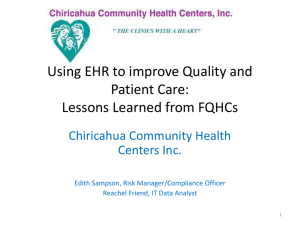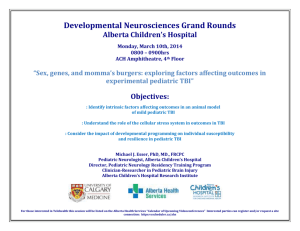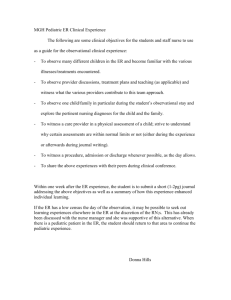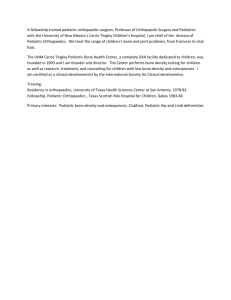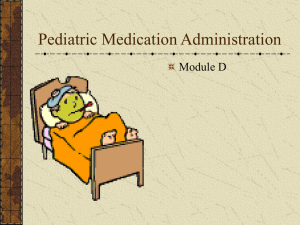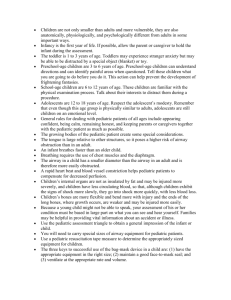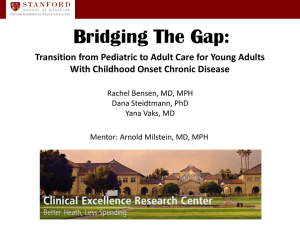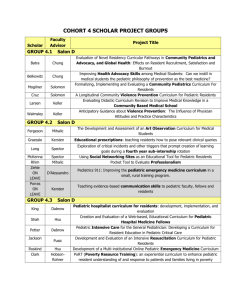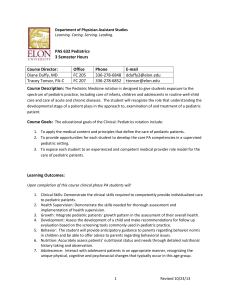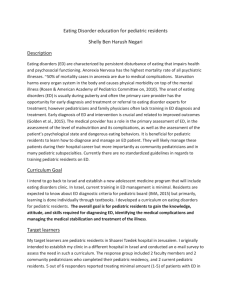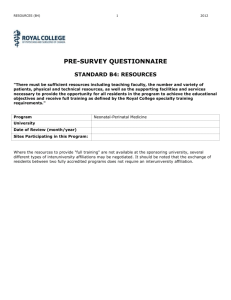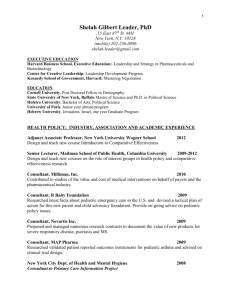acgme - Funandeducation.org
advertisement
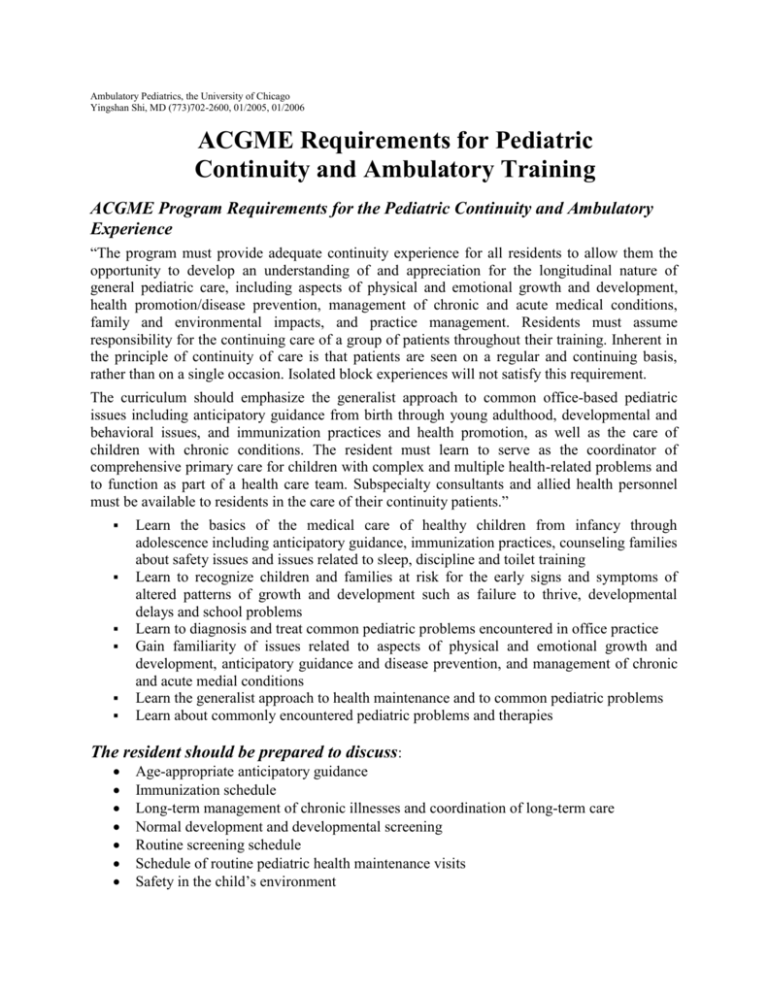
Ambulatory Pediatrics, the University of Chicago Yingshan Shi, MD (773)702-2600, 01/2005, 01/2006 ACGME Requirements for Pediatric Continuity and Ambulatory Training ACGME Program Requirements for the Pediatric Continuity and Ambulatory Experience “The program must provide adequate continuity experience for all residents to allow them the opportunity to develop an understanding of and appreciation for the longitudinal nature of general pediatric care, including aspects of physical and emotional growth and development, health promotion/disease prevention, management of chronic and acute medical conditions, family and environmental impacts, and practice management. Residents must assume responsibility for the continuing care of a group of patients throughout their training. Inherent in the principle of continuity of care is that patients are seen on a regular and continuing basis, rather than on a single occasion. Isolated block experiences will not satisfy this requirement. The curriculum should emphasize the generalist approach to common office-based pediatric issues including anticipatory guidance from birth through young adulthood, developmental and behavioral issues, and immunization practices and health promotion, as well as the care of children with chronic conditions. The resident must learn to serve as the coordinator of comprehensive primary care for children with complex and multiple health-related problems and to function as part of a health care team. Subspecialty consultants and allied health personnel must be available to residents in the care of their continuity patients.” Learn the basics of the medical care of healthy children from infancy through adolescence including anticipatory guidance, immunization practices, counseling families about safety issues and issues related to sleep, discipline and toilet training Learn to recognize children and families at risk for the early signs and symptoms of altered patterns of growth and development such as failure to thrive, developmental delays and school problems Learn to diagnosis and treat common pediatric problems encountered in office practice Gain familiarity of issues related to aspects of physical and emotional growth and development, anticipatory guidance and disease prevention, and management of chronic and acute medial conditions Learn the generalist approach to health maintenance and to common pediatric problems Learn about commonly encountered pediatric problems and therapies The resident should be prepared to discuss: Age-appropriate anticipatory guidance Immunization schedule Long-term management of chronic illnesses and coordination of long-term care Normal development and developmental screening Routine screening schedule Schedule of routine pediatric health maintenance visits Safety in the child’s environment
